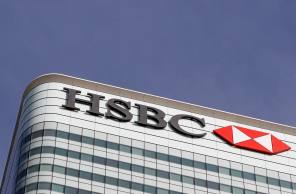

A month later, the UK government bailed out RBS and Lloyds, scrapping their dividends overnight. This caused problems for the army of income investors who relied on these payments.
A decade on, a lot has changed. Last year, for the first time since the Bank of England launched its 'stress tests', not one of the banks failed.
So why does the sector remain unloved?
One of my all-time favourite managers, Alastair Mundy, is among the minority of investors backing the sector.
This isn't necessarily surprising, given that he is a true contrarian, value manager. He describes his investment style as “looking in other people's dustbins for ideas”.
Mr Mundy owned HSBC a decade ago, but was underweight banks when the proverbial hit the fan. As a consequence, Investec UK Special Situations – my best in class choice this week - fell by 'just' 18.8 per cent in 2008, according to data from FE Analytics (total returns in sterling for the calendar year).
This compares to an average drop of 29.9 per cent by the IA UK All Companies sector. The fund then outperformed by 7 per cent the following year.
Today, Mr Mundy is 9 per cent overweight banks in the fund, and Barclays and RBS feature among his top 10 holdings, the fund factsheet to the end of July 2018 shows.
When I spoke to him recently, he explained that banks are unloved because those who invested a decade ago were so bruised by the experience, they are unlikely to invest again. As he put it, “the emotional scars of investments like that stay with you for a long time”.
However, the manager believes regulatory fears about the sector mask a number of positive factors: banks have stopped paying fines, some are highly profitable and he expects dividend payments to increase markedly in the next few years.
Any increases in bad debts could, to some extent, be mitigated by margin expansion. Meanwhile, further interest rate rises could prove positive.
He tries to understand why conventional wisdom might be wrong and attempts to visualise a company’s future, unencumbered by short-term problems. He looks for deep value companies that are exceptionally cheap.
He's happy to invest in a stock that is in an awful state and stay with it until it is just mediocre - not until it is the darling of the investment world.
“As soon as other investors start agreeing with my stock picks, to me it's a sign to sell,” Mr Mundy says.
Value investing has been out of style for some time. In this seemingly perpetual low growth environment, investors have been happy to pay over the odds for stocks with growth potential. As a result, this fund has underperformed (albeit marginally) in four of the past 10 years.
However, the fund comes into its own when there is a sudden swing in investor sentiment.
In 2016, for example, during the 'Trump trade', the fund returned 17.6 per cent, while the peer group achieved 10.8 per cent.
Although value has been out of favour, the manager has still delivered.
Mr Mundy says the current environment is more interesting than it has been for some years. Investors continue to overreact to negative news and Brexit is looming.
Both UK and global investors have put off investing in UK plc until the post-Brexit future is clearer. He believes this is already priced in, which means investors could miss out on potential gains.
Mr Mundy has a well-earned reputation as one of the most disciplined and successful contrarians in the UK. If you are looking for value, look no further.
Darius McDermott is managing director of FundCalibre



